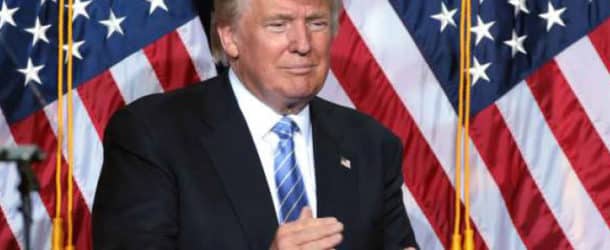At a recent campaign rally, President Trump made the following statement:
“A globalist is a person that wants the globe to do well, frankly, not caring about our country so much. And you know what? We can’t have that. You know, they have a word — it’s sort of become old-fashioned — it’s called a ‘nationalist.’ And I say, really, we’re not supposed to use that word. You know what I am? I’m a nationalist, OK? I’m a nationalist. Nationalist. Nothing wrong; use that word. Use that word.” The crowd went wild and the left went crazy.
Liberal pundits promptly declared that Trump is a racist and that “nationalism” is a “dog whistle” for white supremacists and neo-Nazis who embrace a form of nationalism similar to that of Adolph Hitler and his Third Reich.
Words sometimes mean different things to different people. So what exactly is a “nationalist”?
Patriotism and “nationalism” are near-synonyms: both emphasize a strong love for one’s country; however, nationalism implies an attitude of superiority and lack of respect or concern for other countries.
According to the Merriam Webster Dictionary (merriam-webster.com), “Patriotism is the older of the two words, with published written evidence dating back to the middle of the 17th century. [It comes from the Greek word “patrios,” meaning “of one’s father”].” The term “nationalism” appeared 150 years later. Initially, it was used interchangeably with “patriotism” to refer to a general love of one’s country.
But during the debate leading up to the U.S. Civil War, nationalism began to take on an additional meaning of devotion to the nation (that is, The Union) and its “Manifest Destiny” to rule the North American continent from coast to coast.
Then, around the time of the First World War, nationalism took on the additional meaning of exalting one nation above all others, and the promotion of that nation’s culture and interests above those of other nations or supranational groups. This exclusionary aspect is not shared by patriotism.
When one looks at the modifiers most commonly used with the two words, a subtler difference can be found in the way they are used today: patriotism is more often used in a general sense, often in conjunction with such words as bravery, valor, duty and devotion; while nationalism tends to find itself modified by specific movements, most frequently of a political bent.
When Trump arrived in Paris to commemorate Armistice Day, his comments in praise of nationalism hung over him like a bad stench. Most Europeans believe that extreme nationalism was a primary cause of both World Wars, and they are concerned about the rise of nationalism on their continent. Thus, French president Emmanuel Marcon gave a speech in which he proclaimed that, “Patriotism is the exact opposite of nationalism. Nationalism is a betrayal of patriotism. By saying ‘our interests first, who cares about the others?’ we erase what a nation holds dearest, what gives it life, what makes it great and what is essential: its moral values.”
Words have different meanings to different people, and those meanings can evolve over time. I don’t think that what Trump meant to say was exactly the same as what Marcon and those on the left understood him to say. The headline was Trump praising nationalism; what was overlooked was his initial statement that “a globalist is a person that wants the globe to do well, frankly, not caring about our country so much.” Trump was using nationalism as the opposite of globalism. So what is a globalist?
Try Googling “What is the meaning of globalist?” and you are going to get a vast number of definitions, because “globalist” is a relatively new term just making its way into our political lexicon. I have been opposed to the United States playing Policeman of the World and engaging in nation-building in places like Afghanistan, especially when it means obliterating a culture and religion that a people have embraced for more than 1,000 years and imposing our Western standard of human rights and democracy. Is that our global “Manifest Destiny”?
But there are other areas where we need to promote global cooperation, such as international trade, financial markets, the environment and health issues, such as epidemics that can spread rapidly in today’s shrinking world. We also need to cooperate with our allies for mutual defense.
During the previous administration and among the socialist left, “globalism” takes on a different meaning. It is virtually the opposite of nationalism, wherein we see ourselves as citizens of the world; we believe all nations are equal; and we must sacrifice for the good of all. That was summed up in Obama’s foreign policy of “leading from behind,” which sounds an awful lot like “follow the herd.”
I believe President Trump was denouncing “globalism,” not praising ultra-nationalism. At least, I think that’s what he was doing; it’s sometimes hard to tell from a Tweet, and our president is not one to offer a lot of philosophical explanations.
















Comments are closed.